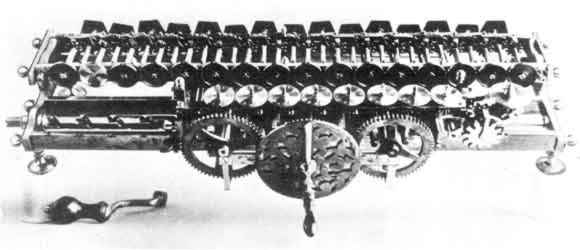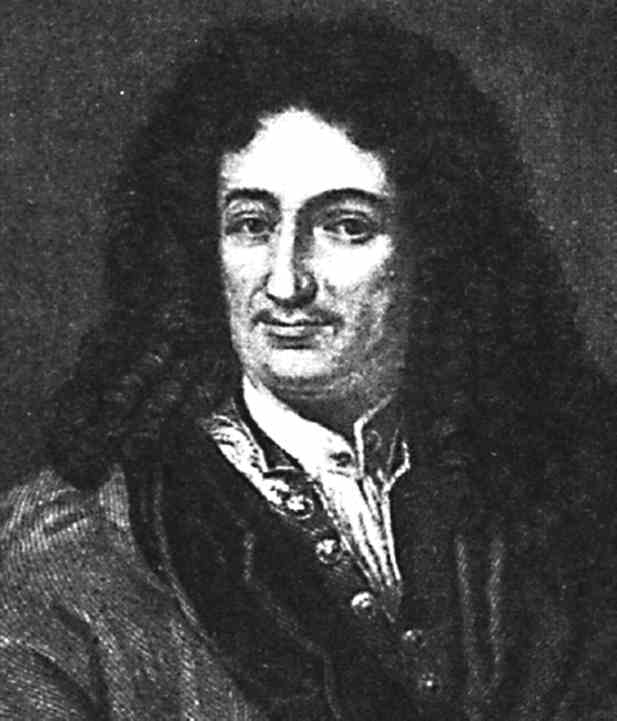| Father of calculus and calculators born 365 years ago |
| Written by Historian | |||
| Friday, 01 July 2011 | |||
|
Gottfried Leibniz, the German mathematician who developed the modern forms of differential and integral calculus was born in Leipzig on July 1, 1646. However he also deserves recognition for his contribution to computer technology.
Leibniz is best known for the co-invention of calculus along with Newton and the acrimonious rows that ensued between them. However, for hardware enthusiasts an even more significant contribution was his introduction of the multiplier wheel into the Pascaline, an adding machine invented in 1642 by Blaise Pascal. This was a very simple "mileometer" type counter. You dialled in the numbers to be added and the result appeared in windows along the top of the machine. Leibniz knew about the Pascaline and recognized its real weakness, the fact that multiplication had to be done by repeated addition. He solved the problem by inventing a new multiplier wheel.
A modified Pascaline complete with the multiplier wheel contributed by Leibniz
This was a brilliant invention and it not only worked it formed the basis of all of the mechanical calculators that followed right up to the point where they were made obsolete by the electronic computer. Leibniz also advocated the use of binary - but for a rather strange reason. He started to think about the number base used to represent numbers at the same time as considering problems like how to reunite the Protestant and Catholic Churches. Mathematicians of the time understood the idea of using different bases but the general opinion was that base ten was the best. Leibniz on the other hand became convinced that binary was to be preferred. From our viewpoint the reason is that binary arithmetic is simple and at the time building a binary calculator would have been easier than building a decimal one. But the reason that Leibniz was so keen on binary was that he thought it would be possible to use it to prove the existence of God. In his logic one symbolized God and zero the empty universe. No one was very impressed by this mixture of philosophy and mysticism but he did convert the Emperor of China using the argument. What would have happened if instead of going off into the realms of the ridiculous Leibniz had managed to make the connection between his mechanical calculator and binary? Perhaps the information age would have been introduced along with steam engines. He also made a significant contribution to computer technology by introducing the multiplier wheel in an early calculating machine.
Gottfried Leibniz (1646-1716)
For more on calculating machines and their C16th and C17th pioneers from a programmer's perspective see:
<ASIN:0521806194> <ASIN:0691141207> <ASIN:0349112398> <ASIN:0818677392>
http://www.i-programmer.info/history/machines/517-the-prehistory-of-computers.html |
|||
| Last Updated ( Friday, 01 July 2011 ) |


